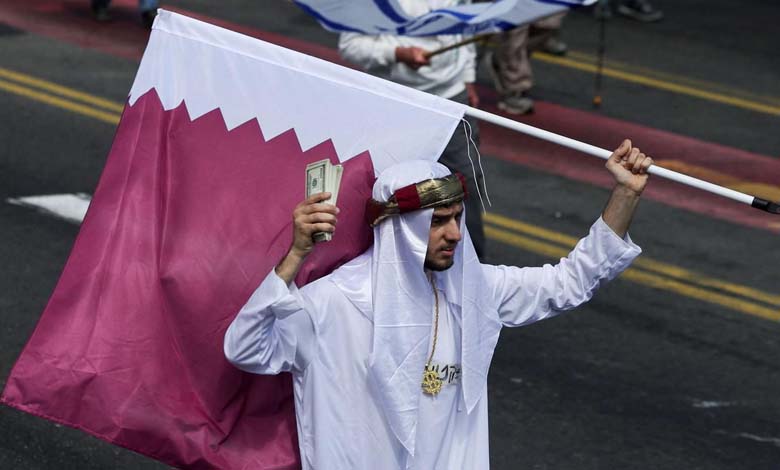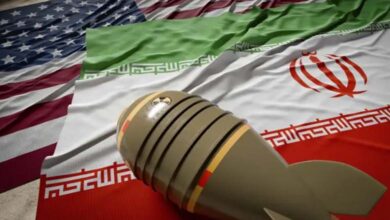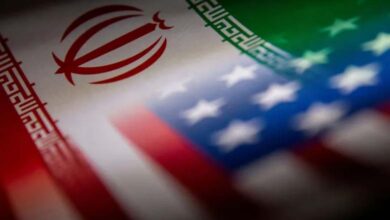QatarGate Scandal Expands and Intensifies in Israel

Investigations reveal messages from journalists and businessmen serving Qatari interests while marginalizing Egypt’s role in ceasefire talks.
The controversial case known as “QatarGate,” which has shaken the Israeli government led by Prime Minister Benjamin Netanyahu, has widened to include businessmen and journalists. The case involves alleged involvement of individuals close to the Prime Minister in receiving funds from Qatar to promote its interests in Israeli-Palestinian negotiations, while diminishing Egypt’s traditional role in these talks.
-
Ties between Qatar and Israel from secrecy to the public
-
The handshake between the Emir of Qatar and the Israeli President stirs controversy on social media… Details
The pointing of fingers at several prominent figures has led to expanded investigations. Businessmen and journalists have been summoned for questioning over their role in transferring Qatari money to Netanyahu’s aides. At the forefront is David Saij, an Israeli businessman who previously served within Israel’s security establishment.
He was questioned on suspicion of communicating with a “foreign agent,” raising concerns about his ties to Qatari movements. Investigations revealed messages between Saij and Yisrael Einhorn, who was working to promote Qatari interests in Israel. Einhorn’s current presence abroad further complicates the probe, according to Makan newspaper.
-
Turkey and Qatar… Negotiations for the release of Israeli prisoners
-
Qatari Army Chief of Staff meets with Israeli counterpart and agrees to install Israeli radars in Qatar
In addition to Saij, businessman Gil Berger, who has connections in the Gulf states, was also interrogated. He is suspected of acting as a middleman in transferring Qatari funds to Netanyahu’s aides. Investigations suggest Berger may have paid salaries to one of Netanyahu’s aides, Eli Feldstein, on behalf of Guy Footlik, who is affiliated with a Qatari lobbying group.
Most of the information came from Feldstein’s phone, including explicit instructions to promote Qatari interests, as reported by Kan 11 TV channel.
Several journalists were also summoned and questioned on suspicions they were instructed to promote Qatari interests via Israeli media outlets, highlighting the potential involvement of the press in the affair.
-
Qatar and Turkey.. Attacks on Israel in the open and economic and diplomatic relations in secret
-
Qatar financial institutions and charity are accused of funding terrorism in Israel
The scandal sparked strong reactions in Israel. Some see the investigations as a “political witch hunt” against Netanyahu, while others believe the probe is necessary to uncover the truth. Netanyahu himself likened the arrest of his aides to a “hostage situation,” criticizing the conduct of the investigations. He asserted the case is part of a campaign by his political opponents.
Egypt has yet to release any official statement on the matter despite its potential implications for its role in Israeli-Palestinian negotiations. As a key regional player, Egypt is indirectly affected by the tensions this case has stirred. Nevertheless, Egyptian officials are quietly monitoring the legal developments, awaiting possible future impacts on Egyptian-Israeli relations.
-
Palestinian and Israeli sources: Qatar would soon normalize ties…$ 30 million to buy the silence of Abu Mazen
-
How does Qatar serve Israel and how it benefits from it?
As for Doha, Qatari officials have categorically denied the allegations of paying individuals close to Netanyahu, calling the reports “fabrications” aimed at tarnishing Qatar’s image globally. These denials came as investigations continued to reveal further details about Israeli individuals serving Qatari interests.
Following intense interrogations, the Israeli court released Netanyahu’s aides, Yonatan Urich and Eli Feldstein, but placed them under house arrest until April 22. They are banned from contacting any parties related to the case, including Netanyahu, for 60 days. Despite the court’s rejection of the police request to extend their detention, their situation remains complex amid serious charges that could harm their political careers.
-
Qatar’s Funding of Hamas Sparks Political Controversy in Israel
-
Trump’s Plan for Gaza Closes the Door to Saudi-Israeli Normalization
The “QatarGate” scandal represents a complex political crisis that may threaten the stability of the Israeli government, with mounting pressure on Netanyahu from political rivals. Questions are increasingly being raised about the government’s integrity regarding money and political dealings. This situation reflects growing instability within the Israeli leadership and places it in a precarious position on the political stage.
The case remains one of the biggest political scandals in Israel, exposing the involvement of prominent individuals in receiving Qatari funds aimed at influencing Israeli-Palestinian negotiations.
Ongoing investigations may reveal more about the ties between Qatar and Netanyahu’s associates, potentially impacting Israel’s relations with neighboring countries. Until then, this case continues to draw widespread domestic and international attention, making its developments crucial for the future of the Israeli government and its credibility in handling foreign affairs.












